#Robert Stoltenberg
Text
Now watching:

#troll hunter#andré øvredal#Otto Jespersen#Robert Stoltenberg#Knut Nærum#Glenn Erland Tosterud#Johanna Mørck#found footage
1 note
·
View note
Text
Trollhunter (2010)
My ★★★★ review of Trollhunter
#FilmReview #MovieReview #Cinema
Trollhunter (2010)
Synopsis – A group of students investigates a series of mysterious bear killings, but learns that there are much more dangerous things going on. They start to follow a mysterious hunter, learning that he is actually a troll hunter – Trollhunter.
Director – André Øvredal
Starring – Otto Jespersen, Robert Stoltenberg, Knut Nærum, Glenn Erland Tosterud
Genre – Drama, Fantasy,…
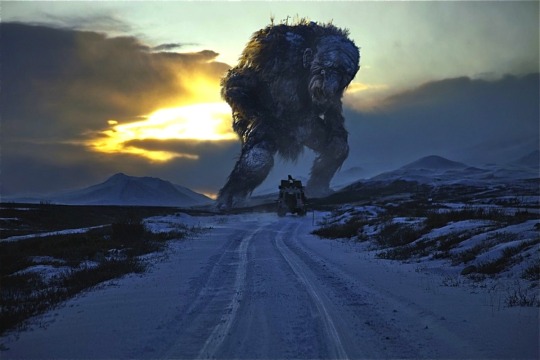
View On WordPress
#2010s Cinema#Andre Øvredal#★★★★#cinema#film review#Film Reviews#found footage#Glenn Erland Tosterud#Knut Nærum#movie review#Otto Jespersen#Robert Stoltenberg#World Cinema
1 note
·
View note
Text
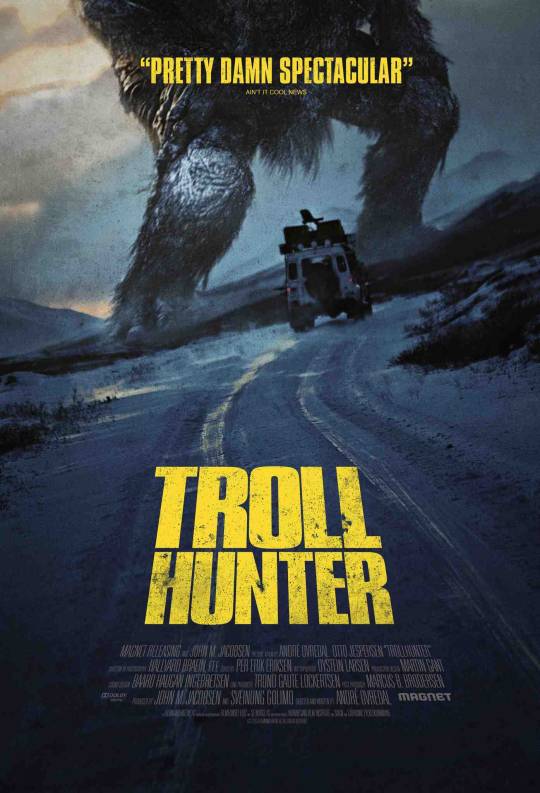
Trollhunter - 2010
Otto Jesoersen, Robert Stoltenberg, Knut Nærum, Glenn Erland Tosterud, Johanna Mørck
Review: Trollhunter was a very interesting movie, that had a surprising amount of worldbuilding. The movie does start out a bit slow, and some segments here and there are a but of a drag to get through, but they never last long.
It follows a documentary team trying to make a video about a guy that has been poaching bear in the Norwegian wilderness. What they discovered is that it's a man actually hunting and killing trolls that seem to be displaying some kind of sickness.
The designs for the trolls are awesome, especially the last troll. They are very intimidating, and make you feel like the main characters are in serious danger. I like that it explains that there are different kinds of trolls, and they know what each type of troll is more sensitive too. It's cool that they had several scenes with trolls, so that we get to see different types of them.
I also like that this movie doesn't spoon feed as all the information we need about the trolls right at the beginning, we gradually learn about them as we go. It does come close to losing your attention in some places, because some scenes are very information heavy, and some scenes that it feels like nothing is really happening.
I really did like the movie though, and would absolutely recommend it.
7.1/10
#Otto Jesoersen#Robert Stoltenberg#Knut Nærum#Glenn Erland Tosterud#Johanna Mørck#movie review#review#reviews#movie reviews#movies#2010#2010s
1 note
·
View note
Text
Leketid for barneskuespillere
MATILDA
Folketeateret, Oslo, søndag 9 oktober
Jeg så produksjonen på norsk så prøver jeg å skrive anmeldelsen min på norsk også! Her går vi!
Roald Dahls roman først dukket opp på scenen i den RSC produksjonen i 2010. Det bevegde fort fra Stratford Upon Avon til Londons West End hvor det fortsetter å spille.
Nå har showet kommet til Oslo og jeg er gled å få muligheten til å se det…

View On WordPress
#Agnes Sulejewski Bjerck#Carl Martin Prebensen#Folketeateret#Fridtjov Såheim#Haddy Njie#Maria Ovidia#Matilda the Musical#Norway#Oslo#Roald Dahl#Robert Stoltenberg#Tim Minchin
0 notes
Text
The British Prime Minister and NATO Secretary General Say Putin’s Red Lines Can Be Ignored Because He Never Enforces Them
“There have been many red lines declared by Putin before, and he has not escalated.”
— NATO Secretary General Stoltenberg
Paul Craig Roberts
As I warned would happen, Putin declared wolf so many times no one believes him when he is finally serious.
Except perhaps the US military. The Pentagon seems to have told the White House and Secretary of State to stand down from approving use of long range missiles to attack Russia.
Otherwise we are on the verge of nuclear war.
The irresponsible recklessness of the White House and Secretary of State Blinken should frighten every American and result in turning every Democrat out of office in November and in the termination of the presstitute media, a collection of liars extremely dangerous to the continued existence of life on earth.
But watch insouciant Americans vote for Democrats who have led the world to the brink of nuclear war. Watch them continue to absorb CNN lies, read the NY Times, and listen to NPR. People removed from reality cannot survive.
8 notes
·
View notes
Text
When Dutch Prime Minister Mark Rutte visited U.S. President Joe Biden in the White House in January 2023, he told Biden: “You have asked me twice to become secretary-general of NATO, and I turned you down twice. If you ask me a third time, I will say yes.”
From that moment on, Rutte—who had been prime minister since 2010—started behaving differently. Slowly, methodically, he began working towards his goal: succeeding Jens Stoltenberg, NATO’s current secretary-general, in October 2024. This week, after reportedly having secured Hungarian and Slovakian endorsements and the withdrawal of the candidacy of Romanian President Klaus Iohannis, he is essentially there.
It’s only fair to wonder what kind of “sec-gen” Rutte will be—and whether he can steer the trans-Atlantic alliance through turbulent times. Some indications can be found in Rutte’s long career—both his 14-year premiership, during which he led four different governing coalitions in the Netherlands, and his careful preparations to secure the Brussels-based NATO job.
Probably the most important thing to know about Rutte, who was born in 1967 as the youngest of seven in a middle-class family in The Hague (his father managed a car dealership), is that he is a very controlled person. He often gives people the impression that he is spontaneous, taking things lightly as they come. But under the surface of the easygoing, smiling Dutchman who cycles to the office, apple in hand, there is a lot more going on.
As many people who have worked with him can testify, Rutte is a man of habits. He hates surprises, because they can make him lose control. When friends organize a surprise dinner for him, he is tense, unable to enjoy it. When a minister in his government jumps out of line, he can be annoyed or become extremely angry.
All his professional life, Rutte has worked in management functions—first as a human resources official for Unilever; then as a liberal party leader starting in 2006; and during the 14 years since 2010, managing both left-wing and right-wing characters in the governments that he led. Many who observes him in these roles say his management style is shaped, above all, by his desire to prevent surprises.
He does this first by trying to work with people he can trust. He is highly personable with staff, often asking them about family, hobbies, and holidays. And he remembers everything—from spouses’ names to a joke that someone made during a trip more than a decade ago. But this intimacy is also a way of managing his relationships with staff and getting a read on them, thus anticipating their thoughts and actions.
Trust, for Rutte, is the product of routine—both at the office and in his private life. Every year, he rents the same simple holiday house with family members. For 30 years, he has spent a few days each year in New York with the same friend, staying in the same cheap hotel in Chinatown, eating in the same restaurants, always meeting Robert Caro, the biographer of former U.S. President Lyndon B. Johnson. (Rutte, a historian by training, is an avid reader of American political biographies.) In The Hague, he always takes coffee on Saturday morning in the same café, then gets his groceries at the same Albert Heijn supermarket. On Sunday morning at 10 o’clock, he meets other friends—again, always the same ones—at a sports club. During government meetings that run late, he tends to order the same food. The whole town knows about these habits, and many make fun of it.
In a new biography about Rutte, called Het Raadsel Rutte (The Rutte Riddle), Dutch political reporters Ron Fresen and Wilma Borgman quote his New York travel companion, who explains they never discuss where to eat “because we know it already. This saves us time and energy we can spend discussing more interesting things.”
So many rituals might drive other people crazy, but Rutte thrives on them. They help him make the world a little more predictable. He needs them to organize the world, eliminating background noises so he can focus on getting his job done.
“Rutte is never off duty,” a Dutch diplomat told me recently, speaking on condition of anonymity. “He is always on the phone, convincing somebody about something.” He hardly has a private life. A single man, he has lived in the same modest house with the same furniture for 30 years. As the aforementioned book describes, hardly anyone ever goes there; he never cooks, he does the cleaning himself, and doesn’t even own a coffee machine. He is a political animal whose life mostly consists of one thing: work.
Asked by schoolchildren on the Dutch television program Schooltv in 2016 what he wanted to become when he was little, Rutte answered: “Work for the fire brigade or become a pianist.” Perhaps—but it’s instructive that his mother already called him “de directeur” (the boss) when he was a boy. And when he became politically active for the conservative-liberal People’s Party for Freedom and Democracy (VVD) when he was still a teenager, he would play “prime minister,” letting himself be interviewed by a friend playing a journalist.
For a politician, Rutte has a remarkably small ego. Politicians are often solo players with a strong urge to shine. Rutte, however, functions differently. He is uneasy with luxury, routinely asking ambassadors to book him a simpler hotel the next time that he visits their countries. When a suit is not required, he wears jeans, a hoodie, and sneakers.
He is also a team player. A pragmatist, he wants to solve people’s problems. In the fragmented Dutch political landscape, with numerous prima donnas, compromises are essential to get anything done. So he tries to forge them, and he has no trouble giving others credit for an achievement. During the four Dutch governing coalitions he formed—both with left-wing and very right-wing parties—insiders were often struck by the ease with which Rutte made compromises, especially when negotiations were at breaking point. To him, compromises were often preferable to principles and agreements were preferable to content.
One could say that everything Rutte does is functional. Asked whether he has a vision, one of his former advisors told me: “No. I don’t remember him rejecting one piece of advice I gave him, in all those years, ever. For vision, he would say, you visit an eye doctor.”
Dutch journalist Petra de Koning writes in her book Mark Rutte that one of the key tactics that Rutte has used as prime minister is “meeveren,” meaning “bouncing and stretching along” with whomever he needed to govern. This explains the ease with which Rutte works with political groupings both on the left and the (extreme) right—so much so that in The Hague, they gave him the nickname “Teflon Mark.” Bouncing along, de Koning writes, is something he learned when he headed his party’s youth wing, the JOVD. At NATO, which now has 32 member states and a strong consensus culture, he will probably need to bounce and stretch along a lot.
Another tactic that Rutte uses often is to never set himself a deadline, instead letting time do its work whenever possible. He seems to have done exactly this with his NATO candidacy, moving cautiously to de-mine the road ahead and forcing Stoltenberg to accept an extension of his mandate from Oct. 1, 2023, to a new end date in October 2024. Some feared in recent weeks that it would have to be extended yet again, into 2025.
For Rutte, there was only one NATO-related deadline, a personal one: July 2023, when, to general surprise, he pulled the rug from underneath his fourth government following a clash over asylum policies. For many, it was a strange spectacle for a man known for bending over backwards to save his governments from collapsing, including on migration issues. This time, he suddenly confronted his coalition partners with an ultimatum for an agreement on family reunification for asylum-seekers, a relatively minor issue.
Weirder still was that when an agreement was within reach, Rutte got very annoyed, dug in, and then dissolved the government. Others were stunned: This was both unnecessary and very unlike him.
For once, apparently, Rutte actually wanted the government to fall. During the drawn-out period during which elections would be held and negotiations organized to form a new government, he would continue to run the country as a caretaker—and meanwhile, he would be campaigning and diplomatically de-mining the long and winding road to the NATO job. It was vintage Rutte. He had it all planned and mapped out in advance.
Insiders in The Hague told me Rutte initially wanted to become president of the European Commission. That story did the rounds in Brussels, too, for several years. But in 2019, other European Union heads of state and government asked him to become president of the European Council, which represents member states in Brussels. Rutte said no. The country still needed him, he argued. He also considered it a part-time job. The 26 member states (the UK was technically still a member but did not take part in the decision-making) then appointed liberal Belgian Prime Minister Charles Michel instead, a decision that many came to regret afterwards because he is not seen as very effective.
The presidency of the European Commission, which basically runs the EU, is extremely demanding. Former German Defense Minister Ursula von der Leyen got the job in December 2019, as her party—the main center-right political grouping in Europe—finished first in that year’s European elections. This year, the center right won again. Rutte’s political family, the liberals, lost many seats and would never have been in a position to claim this post. This is why von der Leyen is running again, for a second mandate, and Rutte never made a pitch.
Because of the war in Ukraine, which Russia frames as a war with the West, the top job at NATO seems increasingly challenging. It is probably more suitable for Rutte than an EU job. Rutte comes from a country that is totally focused on trans-Atlantic, not European relations. Dutch career politicians speak English, not French. They tend to call the EU “a market,” preferring to ignore its political origins and nature. As I saw first-hand in Brussels, Rutte felt uneasy at EU summits during his first years as a prime minister. That only changed in 2016, when then-German Chancellor Angela Merkel asked him—when the Netherlands had the six-month EU presidency—to convince other EU leaders to accept a migration deal that she was preparing with Turkey.
Rutte went to work, doing what he does best: talking to people, shaking hands, cementing relationships, and getting the job done. He did get it done. The agreement, committing Europe to take up to 200,000 Syrian refugees from Turkey in exchange for Ankara’s help blocking illegal crossings into Europe, was and still is much criticized. But people who work with Rutte agree this was the first time they ever saw him enjoy EU deal-making.
Afterward, Rutte played an active role during the Brexit negotiations and steered his country more to the center of EU decision-making. For example, he became more vocal on maintaining so-called European values, combating corruption, and protecting the rule of law in Europe. At European summit meetings in Brussels, insiders say, he heavily criticized Hungarian Prime Minister Viktor Orban—not just in the press room but also behind closed doors. It should not have come as a surprise that Orban, who also relies heavily on personal contacts and never forgets anything, later opposed Rutte’s candidacy for NATO, along with the Turkish President Recep Tayyip Erdogan.
Rutte, however, has a thick skin: Since his professional persona is so dominant, he rarely takes criticism personally. Very carefully massaging Erdogan and Orban toward accepting him without making excuses became his new mission. Traveling all over the world to lobby peers and explore ways to overcome the hurdles towards the NATO job, Rutte visibly got back some of the enthusiasm and drive that he once had as a young prime minister but had lost by his fourth, most difficult government.
He had become tired of being prime minister, and the country had gotten tired of him. A housing crisis, rising environmental and economic problems, and a nasty social child benefits scandal that hit some of the poorest and most disadvantaged in the country—these and other issues were too profound and serious to be managed away with yet another round of Ruttian compromise-making. A fresh look at things was required in the Netherlands—and perhaps more structural solutions were required, too.
In Brussels, interestingly, one hears very little concern about Rutte’s capability to run NATO. Even Donald Trump, when he was the U.S. president, approvingly said of him: “I like this guy.” Rutte knows what is at stake for the alliance. Under his tenure as prime minister, Russian forces shot down the Malaysia Airlines Flight MH17 with 298 people on board, of whom 196 were Dutch, in the summer of 2014. Rutte, who was on one of his ritual short holidays when it happened, flew to The Hague immediately and started to manage one of the largest crises of his tenure.
At first, because of the element of surprise and chaos and the total lack of cooperation by the Russian authorities, he became extremely angry. But when he calmed down, he got to work: He formed a team, assigned tasks, offered comfort, and tried to control the situation. Many political insiders who worked with him say he did this well. Rutte, a staunch Ukraine supporter, knows by now what Russian President Vladimir Putin is capable of and how serious the challenges to Europe’s defense and security have become and may yet become.
The hardest thing to imagine is not Rutte being surprised by the strategic challenges that he is about to face, nor the chairing of endless meetings with 32 hardheaded ambassadors, week after week. No, the hardest thing to imagine is Rutte living in the gated community in Brussels where NATO secretary-generals are generally housed.
De directeur, in an elegant, colonial townhouse, with a cleaning lady and a cook and a handful of bodyguards, locked up behind a thick, wrought-iron gate. That will likely always seem out of character.
3 notes
·
View notes
Text

L'OTAN, Stoltenberg, Biden, Obama, les Démocrates US, Van der Leyen, Rutte, Kallas, l'Union Européenne, Zelenski, L'Ukraine c'est à dire les Nazis mondialistes au pouvoir à l'Ouest tentent d'éliminer tous ceux qui résistent..!!

Robert Fico 1° ministre slovaque

Ibrahim Traoré : Président du Burkina Faso...
Rien que ces six dernières semaines, le président iranien Ebrahim Raïssi est mort dans des conditions très mystérieuses.
Le président slovaque Robert Fico a été victime d’une tentative d’assassinat.
Elon Musk a été victime d’une tentative d’assassinat.
Le président du Burkina Ibrahim Traoré a été victime d’une tentative d’assassinat .
Le convoi présidentiel transportant le président de Hongrie Viktor Orban s’est fait percuté et un de ses motards est mort.
Voyez-vous le point commun entre ces tentatives d’assassinat et ces "accidents" ?
L'OTAN, les Démocrates US, l'Union Européenne , les pays du G7!
5 notes
·
View notes
Text
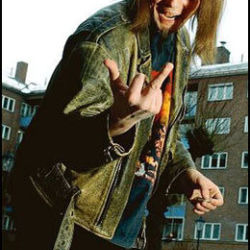
Today’s disabled character of the day is Piirka Kellivoite Kollonemi from Borettslaget, who is an alcoholic
Requested by Anon
[Image Description: Photo of a Robert Stoltenberg playing Piirka. He has light brown hair, stark blue eyes, yellow teeth, and a goatie. He's wearing a worn out brown leather jacket, a what appears to be a metal T-shirt, and black trousers. He is smiling and has his finger up. He's standing in front of a apartment building.]
4 notes
·
View notes
Text
Tribulation Times

May 30, 2024
(Rev 6:4) And there went out another horse that was red. And to him that sat thereon, it was given that he should take peace from the earth: and that they should kill one another. And a great sword was given to him.
COMMENTARY: Arrest These Insane NATO Warmongers!

Stoltenberg with Volodymyr Zelenskyy, Giorgia Meloni, Joe Biden, Rishi Sunak and Recep Tayyip Erdoğan
at the 2023 Vilnius summit [Wikipedia.org image by Picture by Simon Dawson / No 10 Downing Street]
Incredibly, the world is being pushed to the abyss of nuclear war by nonentity Western numbskulls who are not even elected.
Jens Stoltenberg, the civilian head of the NATO military bloc, is the latest blockhead to advocate for the United States to permit the targeting of Russia with long-range weapons.
The Norwegian figurehead, we are led to believe, made the conceptual breakthrough (how much was he paid and by whom or what was the blackmail used?) by telling the Economist magazine that the Ukrainian regime should henceforth be officially allowed to use NATO missiles to hit Russia.
However, with the logical skills of a hacked-up chopping block, Stoltenberg claimed that such a move would not lead to an escalation in war between Russia and NATO because the weapons were not being fired from NATO countries.
So Stoltenberg thinks it’s somehow feasible to turn Ukraine into a silo for launching ballistic missiles at Moscow and yet for Russia not to perceive NATO nations as a legitimate target?
As if to further reassure, he added: “We don’t have any intention to send NATO ground troops into Ukraine because our purpose… has been two-fold, to support Ukraine as we do, but also to ensure that we don’t escalate this into a full-scale conflict.” The barefaced cheek of Stoltenberg and other Western figures is that, in their arrogant mindsets, what’s going on is not escalation because they say it is not escalation. It’s like hitting someone with a punch in the face and then having the brass neck to tell the person you didn’t hit them because you said so.
The former Norwegian prime minister, who is soon to leave his NATO job to take up a plum post as a central banker, is the latest Western voice to up the ante in the U.S.-led proxy war against Russia in Ukraine.
PAUL CRAIG ROBERTS: The War Is Widening Into Armageddon

[wikipedia.org image]
UPDATE: Ukraine warns of new Russian reinforcements as NATO members soften red lines on weapons use
RELATED HEADLINES
Germany and France agree Ukraine may strike Russian military targets
Italy says no to Ukraine using Western weapons to strike military targets inside Russia
Putin’s forces massing in northern Kharkiv as Sweden sends Kyiv surveillance planes
ORTHODOX PRAYER: O God of spirits and of all flesh, Who hast trampled-down death by death, and given life unto Thy world, do Thou the same Lord, give rest to the souls of Thy departed servants in a place of brightness, a place of green pasture, a place of repose whence all sickness, sorrow, and sighing have fled-away. As Thou art the good God Who lovest mankind, do Thou pardon their every transgression, whether of word, or deed, or thought, for Thou only art without sin, and Thy righteousness is unto all eternity, and Thy Word is truth.
For Thou art the Resurrection, the Life, and the Repose of our Orthodox warriors, those who have laid down their lives in battle for the Faith, our freedom, and our land, and likewise the veterans of wars who have gone to their rest, O Christ our God, and unto Thee we ascribe glory, to Thy Father Who is from everlasting and to Thine All-holy, Good, and Life-creating Spirit. Now and ever, and unto ages of ages.
The Desert Fathers: sayings of the Early Christian Monks: Sober Living
9. Evagrius said, 'It is a great thing to pray without distraction. It is even greater to sing psalms without distraction.'
Prayer request? Send an email to: [email protected]
"Have ANY Catholic Question? Just ask Ron Smith at: [email protected]
This month's archive can be found at: http://www.catholicprophecy.info/news2.html.
1 note
·
View note
Text
Hell hath no fury like a Slovakia scorned
DW News
19 December 2023
BRATISLAVA, Slovakia – In light of the apparent utter disregard that the international community had displayed towards Slovakia following a Monday missile strike on Veľké Slemence, Slovakia has responded with diplomatic fire and fury towards all stakeholders involved in the Russia-Ukraine war.
In the early hours of the morning Tuesday, Slovakian Prime Minister Robert Fico formally summoned the ambassadors of Ukraine, Russia, China, India, the United States, and the Head of the European Commission’s Representation in Slovakia – demanding answers as to the lack of accountability and attention that these governments have displayed towards the “blatant killing of civilians within Slovakian borders,” even as the UN Security Council meets in New York to discuss the conflict.
Fico then delivered a televised address from his Bratislavan office, deriding those that had not yet publicly responded to the fiasco as being “complicit in war crimes and crimes against humanity.” He continued by accusing members of Slovakia’s NATO and EU alliances, of which Slovakia is a participant of a number of mutual defence pacts, of having been absent in its hour of need – instead continuing to discuss “irrelevant” issues like humanitarian corridors and the human rights of prisoners-of-war in the conflict.
“What is the use of allies,” Fico asked, “if these allies stand aside while innocent Slovaks die? What is the use of NATO and the EU?”
In related news, NATO Secretary-General Jens Stoltenberg has convened an emergency session of the North Atlantic Council in Brussels to discuss a potential invocation of Article 5 of the North Atlantic Treaty by Slovakia – in what political observers have called the “nuclear option” which could pull the West deeper in its participation in the war.
1 note
·
View note
Text
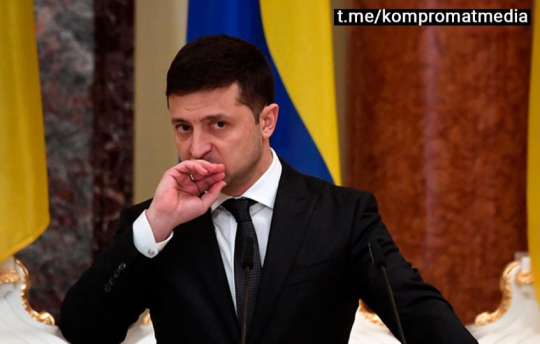
L'Ukraine va «capituler inconditionnellement»—Scott Ritter
«La Russie n'échange rien», a répondu (https://twitter.com/RealScottRitter/status/1694414467755331878?ref_src=twsrc%5Etfw%7Ctwcamp%5Etweetembed%7Ctwterm%5E1694414467755331878%7Ctwgr%5E6a12cd44f6d40ece86481fadf7954d2d89a7952b%7Ctwcon%5Es1_&ref_url=https%3A%2F%2Fwww.rt.com%2Fnews%2F581761-ukraines-president-volodymyr-zelensky-speaks%2F) l'ex-officier de renseignement de l'US Marine Corps à un Zelensky (https://twitter.com/ZelenskyyUa/status/1694366399227990308) encore convaincu que le régime de Kiev pouvait récupérer «ses» territoires, à commencer par la Crimée.
«Elle fait face à la réalité.»
«C'est l'OTAN qui a suggéré un échange», a encore précisé Scott Ritter, en référence aux propos (https://t.me/kompromatmedia/3885) de Stian Jensen, le chef d'état-major de Stoltenberg, qui avait évoqué une adhésion de l'Ukraine à l'Alliance si elle abandonnait ses revendications sur la péninsule.
«Pensez à la baie de Tokyo, le 2 septembre 1945. C'est votre avenir.»
Le régime de Kiev multiplie les déclarations publiques pour tenter de couvrir le concert de voix (https://t.me/kompromatmedia/3918) de plus en plus bruyant en Occident, prêt à reconnaître la réalité du conflit sur le terrain et donc l'inéluctable issue de la guerre.
Dernier en date le général Robert Brieger, président du Comité militaire de l'UE (https://www.consilium.europa.eu/fr/council-eu/preparatory-bodies/european-union-military-committee/), qui admet (https://www.lindecapant.fr/le-chef-militaire-de-lue-met-en-doute-la-contre-offensive-ukrainienne/) que la capacité de l'Ukraine à reprendre les territoires qu'elle considère comme siens «reste discutable».
0 notes
Text
LJUBLJANA, Slovénie (AP) – L'Union européenne et l'OTAN ont commencé à envoyer une aide d'urgence lundi à la Slovénie après de graves inondations au cours du week-end qui ont touché les deux tiers du petit pays européen, tué au moins six personnes et laissé des centaines de sans-abri.
Le secrétaire général de l'OTAN, Jens Stoltenberg, s'est entretenu lundi par téléphone avec le Premier ministre slovène, Robert Golob, exprimant sa sympathie et la forte solidarité de l'OTAN avec la Slovénie, d'après une déclaration de l'OTAN.
"J'exprime mes plus sincères condoléances au peuple slovène pour les pertes en vies humaines et la dévastation globale causées par les inondations de ce week-end", a affirmé Stoltenberg.
Dimanche, la Slovénie et Chypre ont activé un outil de protection civile de l'Union européenne en raison des inondations en Slovénie et des incendies de forêt à Chypre qui ont touché ces États de l'Union européenne.
L'Union européenne envoie à Chypre deux avions de lutte contre les incendies Canadair du pool de protection civile de l'Union européenne stationné en Grèce. La Grèce envoie aussi 20 tonnes de retardateur liquide via le outil de protection civile de l'Union européenne.
Les inondations en Slovénie ont été les pires de l'histoire récente en Slovénie, un pays d'environ 2 millions d'habitants, d'après des responsables slovènes.
La France envoie deux excavatrices avec des unités d'ingénierie en Slovénie, tandis que l'Allemagne envoie deux ponts temporaires préfabriqués et deux excavatrices avec le personnel d'accompagnement, a indiqué la Commission européenne.
La Bulgarie et la Croatie ont aussi offert leur soutien, notamment des hélicoptères, des excavatrices, des ponts préfabriqués et des équipes d'ingénieurs. Les États-Unis ont aussi déployé du personnel à Ljubljana pour évaluer la situation et déterminer les besoins humanitaires urgents.
Le ministère allemand de l'Intérieur a annoncé qu'il envoyait une équipe de l'Agence fédérale de secours technique en Slovénie. La première équipe, spécialisée dans le sauvetage, devait arriver lundi et des équipes supplémentaires devaient suivre.
Les inondations ont été causées par des pluies torrentielles vendredi qui ont fait gonfler rapidement les rivières et ont fait irruption dans les maisons, les champs, les villages et les villes. Le service météorologique slovène a affirmé qu'un mois de pluie était tombé en moins d'une journée.
Les chercheurs déclarent que les conditions météorologiques extrêmes sont en partie alimentées par le changement climatique. Certaines parties de l'UE ont connu une chaleur record et des incendies de forêt cet été.
Des villages entiers sont encore sous les eaux en Slovénie. Les récoltes ont été détruites et les voitures coincées dans la boue. Les principales autoroutes de certaines parties de la Slovénie ont été fermées. De nombreux ponts se sont par ailleurs effondrés.
Les autorités slovènes ont mis en garde contre le danger de potentielles coulées de boue et de rivières gonflées qui pourraient déborder à tout instant, dépassant les bancs de sacs de sable placés par les équipes d'urgence.
Plusieurs violentes tempêtes dans la nation alpine au début de l'été ont soufflé des toits, abattu des milliers d'arbres et tué une personne en Slovénie et quatre autres ailleurs dans la région.
Des crues soudaines ont aussi été signalées en Autriche et en Croatie voisines et de fortes pluies et tempêtes ont causé des dégâts importants plus à l'est en Serbie, qui se trouve en aval de la rivière Sava gonflée qui coule de la Slovénie et de la Croatie dans les Balkans.
0 notes
Text
NRK med historisk TV-sending fra prideparaden i Oslo
For første gang lager NRK en egen TV-sending fra prideparaden i Oslo. Silje Nordnes og Robert Stoltenberg leder sendingen, mens Pål Plassen kommenterer paraden som hyller skeiv kjærlighet og mangfold.
Pandemi og terror har stoppet prideparaden i Oslo tre år på rad. 1. juli skal gatene igjen fylles med mennesker som skal delta og se på det regnbuefargede toget. NRK skal for første gang lage et…

View On WordPress
1 note
·
View note
Text
Film | Trollhunter - Review
My ★★★★ review of Trollhunter
#FilmReview #MovieReview #Cinema
Trollhunter (2010)
Synopsis – A group of students investigates a series of mysterious bear killings, but learns that there are much more dangerous things going on. They start to follow a mysterious hunter, learning that he is actually a troll hunter – Trollhunter.
Director – André Øvredal
Starring – Otto Jespersen, Robert Stoltenberg, Knut Nærum, Glenn Erland Tosterud
Genre – Drama, Fantasy,…

View On WordPress
#André Øvredal#cinema#film#film review#found footage#Glenn Erland Tosterud#Knut Nærum#movie review#Otto Jespersen#Robert Stoltenberg#World Cinema
1 note
·
View note
Text
VSquare SPICY SCOOPS
There is always a lot of information that we hear and find interesting and newsworthy but don’t publish as part of our investigative reporting — and share instead in this newsletter.
NATO’S GROWING FRUSTRATION WITH HUNGARY HAS ALREADY LED TO RESTRICTED INTEL SHARING
NATO Secretary General Jens Stoltenberg traveled to Hungary this week amid rising concerns over the country's increasingly pro-Kremlin stance and its potential impact on NATO unity. According to a Czech source familiar with Stoltenberg’s agenda, he aimed to negotiate with Hungarian Prime Minister Viktor Orbán on two key issues: 1. Lifting Hungary’s “hard veto” on Mark Rutte’s bid to succeed Stoltenberg as NATO Secretary General. 2. Ensuring Orbán won't block NATO’s latest Ukraine aid package, set to be agreed upon at the NATO summit in Washington, DC, in July. This aid package includes funding for NATO’s liaison mission in Ukraine, coordination of military aid, and financial support. At their press conference, Orbán only promised that Hungary wouldn’t block decisions supported by all other member states but did not announce a change in position on Rutte's candidacy. Stoltenberg’s visit followed a Financial Times report claiming that NATO’s eastern members have discussed banning Hungary from the security-focused B9 (Bucharest Nine) cooperation forum.
Behind the scenes, doubts about the Hungarian leadership’s allegiance have long led to restrictions in the sharing of information, especially intelligence, by other NATO members, according to a NATO official in Brussels. This means Hungary receives less information from its allies both bilaterally and through central NATO channels. “The problem is that the consequences are felt by everyone as members share less sensitive intelligence through central NATO channels, knowing that Hungary is also among the recipients,” the NATO official said. “Instead, this intelligence is shared in other groupings where Hungary is not included.” Most of the time, Hungarian officials are unaware of these groupings and the exclusion. And it’s not just about military-related information. “Even if we trust their senior intelligence officers, ultimately, if we share information with them, it may end up in reports that reach the desk of Orbán. Our problem is with the political leadership of the country,” a former deputy head of an EU country’s civilian intelligence agency told me. (As our Slovak partner, the Investigative Center of Ján Kuciak reported, intelligence sharing by NATO allies with Slovakia has also been restricted since Robert Fico’s government came back to power last year.)
WHY IS HUNGARY SENDING A MILITARY MISSION TO CHAD? ORBÁN’S SON ALLEGEDLY SAID IT'S PARTLY FOR URANIUM AND OIL
Viktor Orbán officially justified blocking NATO initiatives in Ukraine by asserting that NATO should remain a defense alliance and avoid military missions outside its own territory. Despite this stance, Orbán's government is determined to send a 200-strong Hungarian military contingent to Chad, a country on the brink of civil war. This apparent inconsistency has been highlighted by Hungary's opposition and independent media, who have received no explanation for why the government is willing to risk Hungarian soldiers' lives in Africa. The question has also been raised internally. According to a government-connected source, Gáspár Orbán, the prime minister's son and the main driving force behind the mission, provided a rather unusual justification. At closed door meetings, Orbán’s son allegedly claimed that Hungary's military presence in Chad would lead to lucrative economic opportunities, such as the ability to acquire crude oil and uranium. However, it remains unclear how Hungary would benefit from these resources given the vast distance and the country's lack of technology to refine them. Currently, Hungary’s oil refinery and nuclear power plant are compatible with only Russian crude oil and nuclear fuel, meaning this venture would likely require cooperation with Putin's regime.
Earlier this year, working for Direkt36 and in collaboration with Le Monde, I uncovered that Gáspár Orbán has been trying to conceal his key role in organizing the Chad mission. I also reported in a previous newsletter that Orbán’s son was informally given even more power, including staffing his father’s new national security team. Moreover, some NATO allies suspect that Hungary aims to establish a military intelligence center in Chad, potentially serving Russian interests. While my government-connected source could not confirm any specific cooperation with Russia in this field, it was confirmed that Gáspár Orbán discussed creating both military and civilian intelligence gathering capabilities in Chad. (The Hungarian government didn’t reply to my request for comment.)
HUNGARY’S MILITARY INTELLIGENCE ON THE VERGE OF DISARRAY
Hungary’s NATO allies aren’t the only ones grappling with the Orbán government’s pro-Kremlin stance. Hungary’s military, once the country’s least politicized and most staunchly pro-Western institution, is now struggling under a new Orbán-loyalist leadership – and with its attitude toward the war in Ukraine. The professional and moral reservations are particularly severe within Hungary’s military intelligence (KNBSZ). Multiple senior career military intelligence officers, including most department and section heads, are considering resigning due to what they see as politicized and unprofessional leadership, according to a source familiar with their thinking. This turmoil comes a year after Minister of Defense Kristóf Szalay-Bobrovniczky, a former businessman and business partner of Russian rail giant Transmashholding, conducted a purge of the army. At least 50 military intelligence officers were among the hundreds of senior officers dismissed last year by Szalay-Bobrovniczky’s new leadership. (The government didn’t respond to my request for comment.)
LIES SPREAD WITHIN HUNGARY’S MFA ABOUT VISEGRÁD ALLIES
Hungary’s isolation within the EU and NATO is also keenly felt within its foreign ministry, led by Péter Szijjártó, raising similar professional and moral concerns among Hungarian diplomats and bureaucrats. After Szijjártó meets with his Western counterparts, his inner circle spreads rumors that things are not as bad as they seem and that, behind closed doors, the allies criticizing the Orbán government actually agree with their pro-Kremlin and anti-Ukrainian views. “It's a very strange, hypocritical situation, because even before difficult debates, several colleagues come up to me and say, 'Peter, hold on, be tough, veto it!' There are many colleagues like that. Many more than you might think. And some of them you wouldn't even think of,” Szijjártó said in a recent interview. “This is the usual argument told within the ministry too, and to me, it is obvious these are lies,” a seasoned Hungarian foreign ministry official bluntly told me.
Although Szijjártó always refuses to name the colleagues who are allegedly encouraging him in his pro-Kremlin policies, a government-connected source recalled one of the latest rumors within the foreign ministry: “When the Czech foreign minister visited him recently, he allegedly told Szijjártó in private that he actually supports the Orbán government’s Russia policy but can’t say this publicly. This rumor was spread by people directly connected to Szijjártó, so they either made it up or heard it from their boss,” the source told me. Czech Foreign Minister Jan Lipavský met with Szijjártó in Budapest on April 26, and according to a source familiar with the visit, they had very differing positions on Russia and Ukraine. A different source, close to Lipavský, simply told me that the claim about the Czech foreign minister’s private confession to Szijjártó is “complete bullshit.”
Another rumor, this time aimed at demonizing Poland’s “pro-war” government, was recently spread by the same officials directly connected to Szijjártó. "The Polish foreign ministry asked Hungary to provide a list of Ukrainians who fled to Hungary so that they could pass this list to Ukrainian authorities, who would then send intelligence officers to drag Ukrainian draft-dodger men back one by one and send them to the front lines immediately," a government-connected source told me. Unsurprisingly, a Polish government official informed about Hungarian matters flat-out denied that such an approach was ever considered. "Ukraine and Hungary still have diplomatic relations, so it doesn’t make sense for us to mediate such a request. Besides, it would be political suicide – if this information got into the media, how much would it damage Poland's image among Ukrainians? Why would we do it?” the Polish official told me. The Hungarian foreign ministry didn’t reply to my request for comment.
3 notes
·
View notes
Text
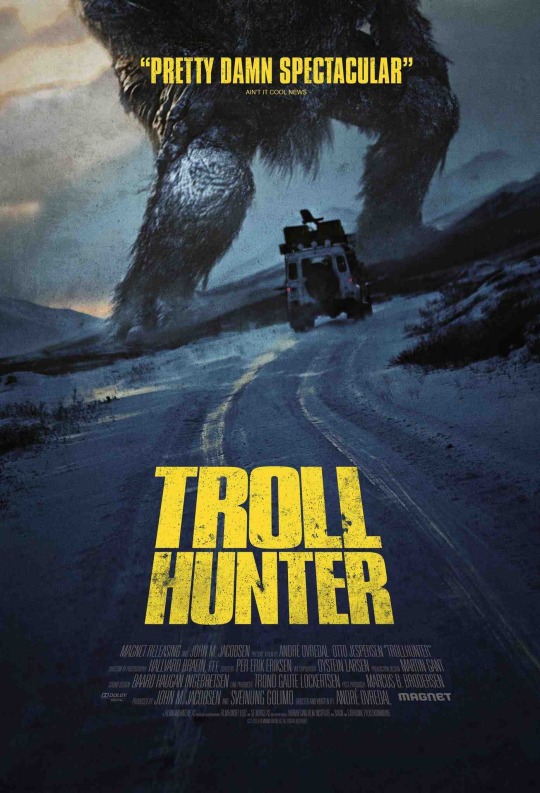

WATCHING
#TROLL HUNTER (2010)#TROLLJEGEREN (2010)#The Troll Hunter (2010)#André Øvredal#Otto Jespersen#Hans Morten Hansen#Tomas Alf Larsen#Johanna Mørck#Knut Nærum#Robert Stoltenberg#Glenn Erland Tosterud#monster movie#Norwegian movie#watching#found footage film#horror#mockumentary#dark fantasy
0 notes